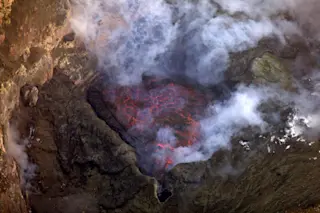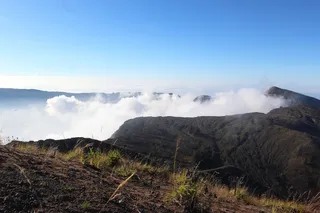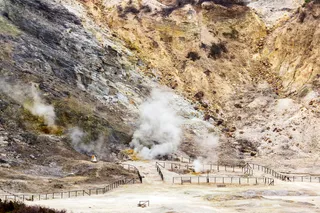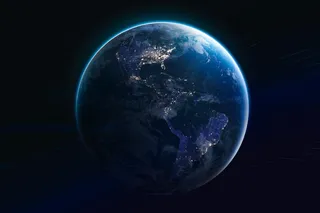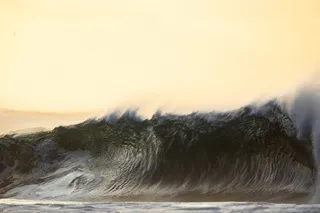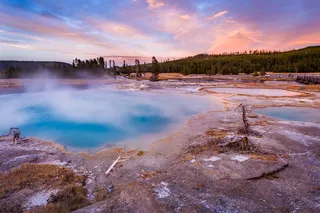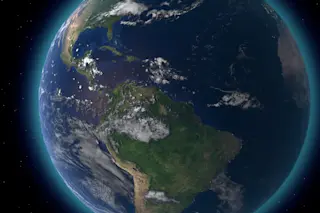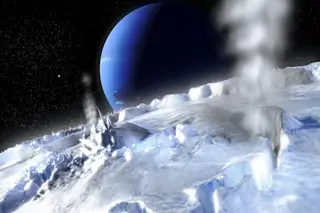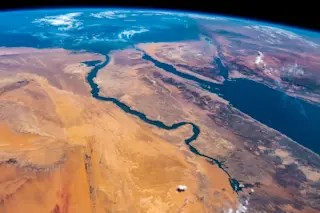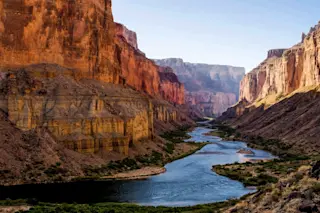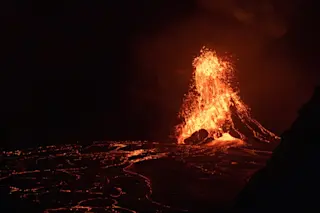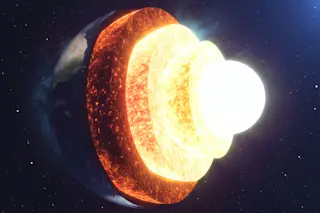The lava lake at Antarctica's Erebus, seen in December 2011. Image: Clive Oppenheimer / Volcanofiles. Lava lakes are a relatively rare volcanic features -- there are only a handful of active ones on the planet. Kilauea (with two), Ambrym, Villarrica, Nyiragongo, Erta'Ale, a fairly new, possibly ephemeral lake at Tolbachik and probably the most remote lava lake of them all, Erebus in Antarctica. The Erebus lava lake as been a persistent feature on the volcano for decades (if not longer). However, it's remote location means it is normally monitored by satellite unless conditions allow for a team to reach the summit of the volcano from McMurdo Station (see above). As the southern hemisphere begins to head into fall, just such an opportunity came last week, so geologists from McMurdo set off to view the lava lake. What they found took everyone by surprise (including me). It has long been thought ...
Surprise from the Lava Lake at Antarctica's Erebus
Discover the surprising findings from the Erebus lava lake as geologists uncover unexpected life around this active volcanic site.
More on Discover
Stay Curious
SubscribeTo The Magazine
Save up to 40% off the cover price when you subscribe to Discover magazine.
Subscribe

